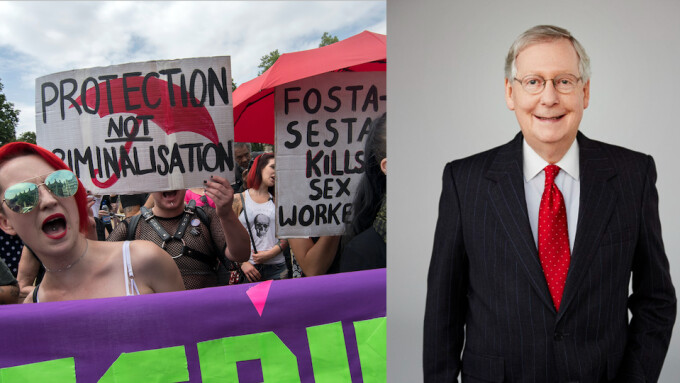WASHINGTON — An article published yesterday by legislative news site The Hill yesterday highlighted the dire consequences that the campaign to repeal Section 230 is already having for sex worker safety and visibility.
“Being deplatformed can have a serious effect on sex workers’ livelihoods, especially with the coronavirus pandemic taking away many of their other sources of promotion,” writer Chris Mills Rodrigo pointed out.
Section 230 has jumped to the forefront of national news, after Senator Mitch McConnell (R-Ky.) adamantly refused to have a vote on much-needed $2,000 COVID relief checks for most Americans unless Congress also repealed the so-called “First Amendment of the internet.”
Multiple voices with actual inside knowledge of the sex work industry were interviewed by Mills Rodrigo, including a sex worker who reported increased surveillance and censorship linked to the campaign to repeal Section 230.
According to her, a direct consequence of this campaign was to “further [render] us invisible in the context of a pandemic when most work is online and we can't even promote our work online."
“It is actually evil in my opinion,” she added.
The article cites Kate D’Adamo, a sex worker rights activist and partner at Reframe Health and Justice, to point out that “the downfall of Backpage combined with FOSTA/SESTA destabilized the sex work industry in the short term and harmed it gravely in the long term.”
“Other websites that could have been spaces for sex workers to regroup after Backpage, such as Craigslist or Tumblr, cracked down on sex-related content in the wake of the law,” The Hill article continued.
The article also correctly noted that the passage of FOSTA-SESTA “forced content onto more obscure sites, ultimately making it more difficult to maintain lists of dangerous clients, called 'no-date lists,' and other norms surrounding interaction.”
To read “Sex Workers Warn of Unintended Consequences in Section 230 Fight,” visit TheHill.com.








